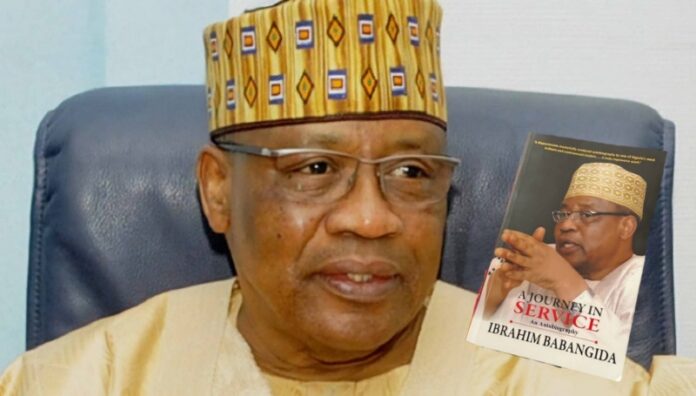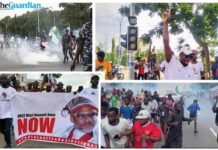Rotimi Fasan
A major point of debate that came out of the publication of General Ibrahim Babangida’s memoir centred around an event in which from his own admission he was just a distant observer. This was the January 15, 1966 coup that claimed an entire generation of political leaders, civilian and military, from parts of the country other than the South-East. This coup was led by a core of five middle-ranked officers and others that were overwhelmingly from the South-East.
The most prominent of these were Chukwuma Kaduna Nzeogwu, the face and putative leader of the coup and Emmanuel Ifeajuna, who intelligence has since revealed to be the actual mastermind (or masterminder to borrow the words of Oladipo Diya during his trial for the so-called phantom coup of 1997) and promoter of the coup just as Babangida appears to hint from his memoir that Major Clement Dabang and not Bukar Suka Dimka was the leader of the abortive coup of 1976.
The January 15 coup of 1966 was Nigeria’s first coup and General Babangida was at this time a 24-year-old Second Lieutenant, then serving in Kaduna. The skewed outcome of the coup in terms of the ethnic composition of its victims would lead to the belief that it was ethnically motivated. This would in turn lead to a counter coup led by Northern military officers on July 29, 1966 with the following events leading on to the civil war. In six pages, Babangida recounts his experience of these coups without for once telling his reader his part in either of these coups. Yet, it is generally believed that Babangida (as it would later be said of Sani Abacha) was a serial coup plotter who had had a hand in every coup that had taken place in Nigeria (See page 119 of his memoir).
As he says in his memoir, the German writer of This House Has Fallen, Karl Maier, once said coup ran in Babangida’s blood. That is the myth- at least to the extent that it conveyed the impression that IBB’s military career was all about planning coups. The truth is that Babangida had no part in the planning of the first coup. That is obvious enough as he was only woken up from a sleep to report for duty as the coup unfolded. He would leave for a course in the United Kingdom shortly after the coup. He was apparently involved in the counter-coup of July but on this he chooses to be silent about the nature of his involvement.
Like in his account of the first coup, Babangida rather clinically writes about the second coup as an observer rather than a participant. It is part of a discursive sleight of hand that sees him referencing some of the more consequential actions or achievements of his while in government in collective terms. Rather than using the personal pronoun “I” he sometimes uses the collective “We” or its variants “Our”. So, why are there gaps about his involvement in the counter-coup that was no doubt ethnically motivated in reaction to the first coup? Why? Perhaps to mitigate his complicity and the possible blowback that could flow from that? Certainly, a graphic or detailed account would not leave room for the warm effusion of praises that have trailed his claim that the January coup was not the outcome of a conspiracy that was planned and hatched by the Igbo.
On account of this supposed claim, Babangida has become both a hero and a veritable source of history in unlikely quarters from where there now come demands for reparation for the Igbo. While headline writers might have made a feast of what IBB may have said, the question one still needs to ask is this: did Babangida positively say this and without his typical ambiguity? In this age of social media influencers and on-air personalities, so-called journalists could be sloppy if not outright mischievous. They are headline hunters who would do anything to attract attention. Recall how some of them turned Bishop Matthew Hassan Kukah’s statement about our leadership recruitment process on its head.
These leaders, except for Bola Tinubu, he said got into office without adequate preparation. Even Tinubu, he said, is struggling despite his apparent preparedness. But what did our journalists give us? The exact opposite of what the Bishop said about Tinubu who was singled in many reports. My point, therefore, is that Babangida appears to be deliberately ambiguous in cutting the first coup plotters a slack. On page 39 of his book, Babangida says as a young officer watching from a distance, the coup was probably not motivated by ethnic sentiments. His reason for saying this are the usual ones that have been offered over the course of several decades: the fact that the supposed leader of the coup, Chukwuma Nzeogwu, was only Igbo in name, the involvement of a couple of non-Igbo officers like Adewale Ademoyega, the murder of some Igbo officers, the idea that the coup was largely foiled by Igbo officers and the supposed plan of the plotters to release and make Chief Obafemi Awolowo a provisional president.
Babangida’s view of the coup changed, in his account, with the murder of Sir Ahmadu Bello, his wife Hafsatu and the Sardauna’s personal guard even when they did not resist arrest. From this point, Babangida says, ‘the putsch was infiltrated by “outsiders” to its supposed original intention, and it took on an unmistakably ethnic colouration, compounded by the fact that there were no related coup activities in the Eastern region’. How did outsiders infiltrate the coup at this point? Were they invited in or did they come in uninvited at this point, and from where? Is it the fact of the Sardauna’s murder that signalled the infiltration of outsiders? I am actually parsing Ibrahim Babangida’s words now on page 39. How does this one event in Kaduna account for the lack of action in the Eastern region? The plotters had their briefs before D-Day? Where did infiltrators come from at that point?
Babangida concludes on page 40 that his position as a distant observer may be wrong and naive based as it is on speculation. You can’t go to bank with Babangida’s words here. Chukwuma Kaduna Nzeogwu by his public profile seems to be the one of the plotters driven by ideological/revolutionary fervour. May be Adewale Ademoyega too going by his own account in Why We Struck. At least for many if not most of the plotters, the coup appears to have been ethnically motivated. That is going by the convergence of events that appeared uncommonly favourable to the Eastern Region. Does that justify the indiscriminate bloodbath against the Igbos that followed, before or thereafter? No! No!!




























































